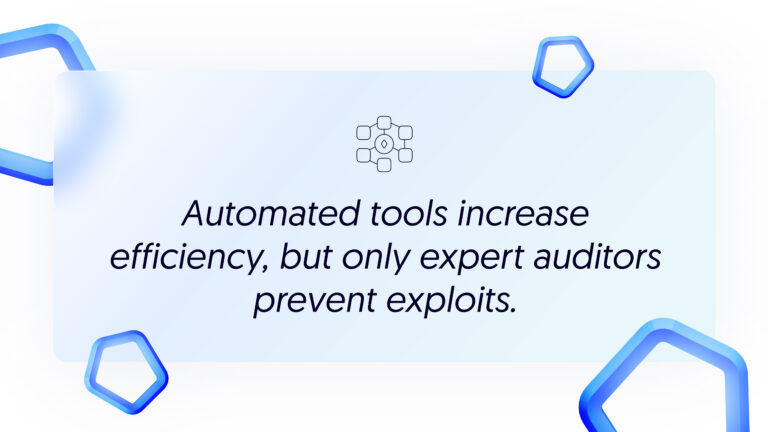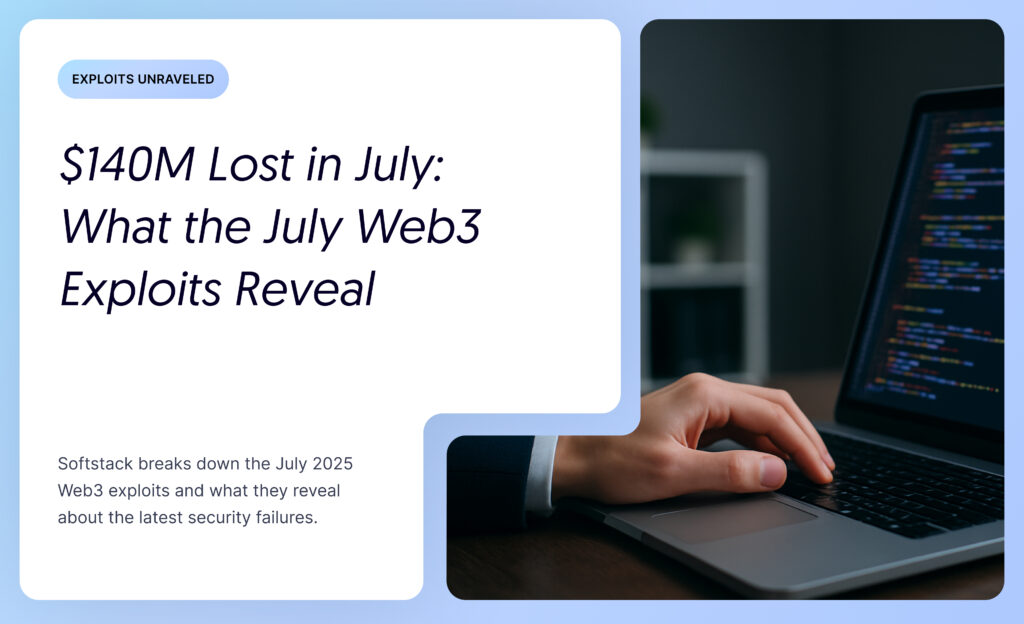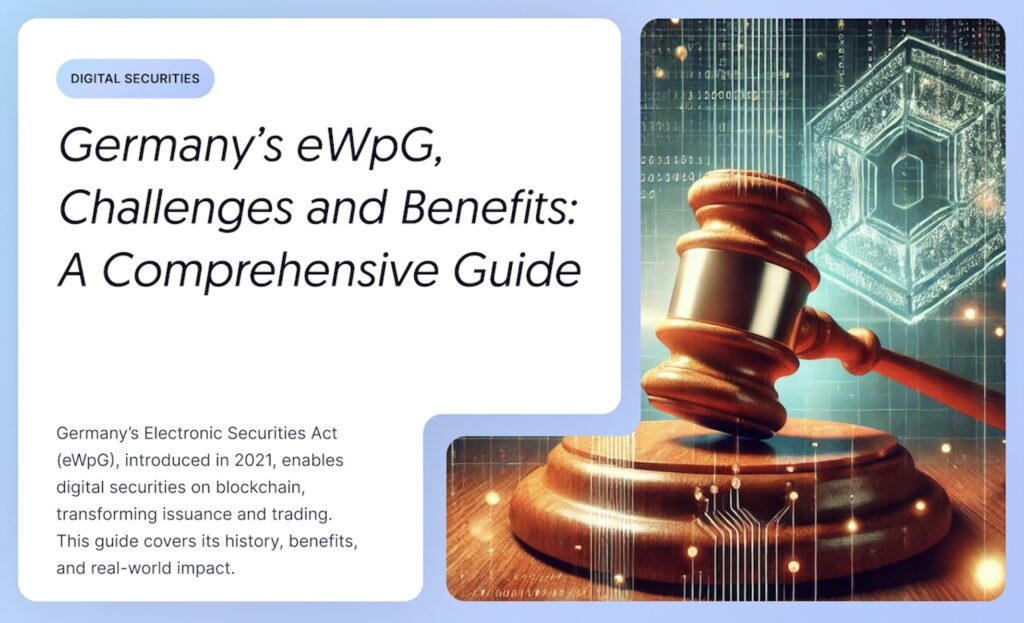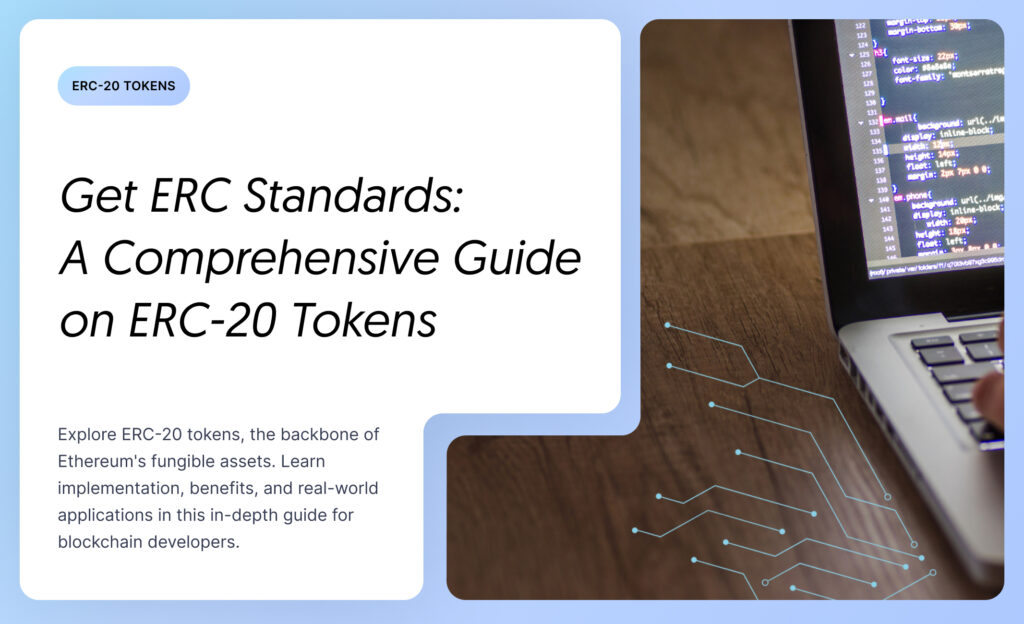Summarize:
Smart contracts now power the core of decentralized finance, gaming, DePIN, and more. But with growing adoption comes increasing risk. Every year, billions are lost due to vulnerabilities in smart contracts. As code complexity rises, developers and security teams must rely on advanced tools to catch hidden bugs, prevent exploits, and protect users.
This article reviews the ten most effective smart contract audit tools used in 2025. We cover their strengths, best use cases, and how they fit into a secure development process. Whether you’re working on EVM, SVM or any other chain this guide helps you choose the right mix of automation and expert review to launch with confidence.
What Is a Smart Contract Audit Tool?
A smart contract audit tool is a software platform used to detect vulnerabilities in blockchain code before it’s deployed. These tools analyze source code to catch critical flaws, such as reentrancy, integer overflows, access control errors, and logic bugs, that can be exploited once on-chain. Some tools focus on static analysis, others on fuzzing, simulation, or formal verification.
Why You Still Need Manual Audits
Automated tools help identify known vulnerabilities and surface red flags, but they can’t detect everything. Many of the largest hacks in history were due to logic flaws or ecosystem-wide exploits that required human review. A complete audit includes:
Automated scanning
Manual code review
Business logic validation
Real-world attack simulation
Optional formal verification
That’s why leading security firms combine both automated and manual processes, with several blockchain engineers, ensuring that every audit is complete and regulator-ready.
🛠️ Top 10 Smart Contract Auditing Tools in 2025
1. GPT-4 and Claude
Best for: Rapid code interpretation and prompt-driven checks
Supported languages: Solidity, Rust, Move, Cairo
Used increasingly in early-stage reviews as a first check.
✅ Fast logic analysis
✅ Great for walkthroughs and test generation
❌ Cannot replace formal verification
2. SolidCheck
Best for: Regulated audits, DeFi protocols, MiCA-compliant projects
Supported chains: EVM, Solana, Cosmos SDK, and more
Solidcheck platform combines automated scanning and MiCA-aligned risk scoring. Ideal as a first step before an additional manual review.
✅ AI-powered vulnerability detection
✅ Human-led expert validation
✅ ESG and MiCA risk scoring
✅ Trusted by BitGo, Siemens, Anchorage Digital and more
3. Slither
Best for: Developers integrating CI pipelines
Supported chains: Ethereum-compatible (Solidity)
Developed by Trail of Bits, Slither is a static analysis tool that’s widely used by top auditing teams.
✅ Fast CLI integration
✅ Strong static analysis
❌ Not beginner-friendly
4. MythX
Best for: Solidity projects and CI/CD pipelines
Supported chains: Ethereum, Polygon, BNB Chain
MythX detects security vulnerabilities using symbolic execution and deep static analysis.
✅ IDE plugin support
✅ Vulnerability coverage
❌ Focused only on EVM
5. Foundry (Forge + Anvil)
Best for: Fuzz testing, unit testing, simulations
Supported chains: Ethereum (Solidity)
A modern toolchain that provides efficient fuzzing and testing, ideal for audit prep.
✅ Dev-first approach
✅ Invariant and property-based testing
❌ Not beginner friendly
6. Certora Prover
Best for: Formal verification for critical contracts
Used by: Aave, Compound, dYdX
Provides mathematical guarantees that certain functions behave securely under all inputs.
✅ Formal assurance
✅ Great for AMMs and lending
❌ High learning curve
7. Tenderly
Best for: Post-deployment analysis, live simulations
Used for: Gas profiling, runtime error tracking
Not a vulnerability scanner, but essential for live monitoring and debugging.
✅ Real-time observability
✅ Transaction simulation
❌ Not for pre-deployment audits
8. Scribble (by ConsenSys)
Best for: Property-based testing
Used with: Echidna, fuzzing environments
Lets developers define behavior specs for smart contracts.
✅ Adds runtime assertions
✅ Good for audit prep
❌ Complex syntax for newcomers
9. Echidna
Best for: Fuzz testing Solidity contracts
Used for: Property-based vulnerability discovery
Automatically generates inputs to uncover hidden logic bugs.
✅ Strong fuzzing coverage
✅ Works with assertions
❌ Needs setup and Solidity expertise
10. Securify (by ChainSecurity)
Best for: Quick contract snapshots
Supported chains: EVM
Delivers auto-generated security reports with severity scores.
✅ Beginner friendly
✅ Good for early reviews
❌ Limited depth

🚨 Why Manual Review Is Still Essential
Most DeFi exploits in the past two years, like Nomad, Mango Markets, and Euler, were not caught by automated tools. They could have been caught by expert auditors during manual review and simulation.
At Softstack, we blend the best of both worlds:
Automated tools like SolidCheck
Manual inspection by several senior engineers
Real-time simulations and governance risk analysis
MiCA-aligned reports for investor confidence
With over 1,200 audits completed since 2017 and a zero-exploit record, we help teams launch securely and with confidence.
✅ Ready to Audit Your Smart Contracts?
Softstack is a German Web3 development and auditing firm with over 1,200 zero exploit audits since 2017. We deliver transparent, hands-on support from scoping through verification. Whether you are a seed stage startup or an enterprise protocol, we help you launch with confidence.
Ready to get started?
📞 Book a free consultation at https://calendly.com/softstack
OR
📤 Email hello@softstack.io with a link to your code repository so we can review your codebase and get you an accurate quotation.
Would you recommend Softstack to fellow Web3 builders?
Join our Service Partner Program (SPP) and provide your network with a trustworthy partner.
✅ Up to 20 percent referral commission
✅ Fast tracked onboarding
✅ Preferential rates
✅ Over 1 million dollars in partner savings via https://deals.softstack.io
✅ Lead sharing and co marketing support
👉 https://softstack.io/service-partner-program-spp
📁 Also available on GitHub: Which Smart Contract Audit Firms Have the Best reputation?






